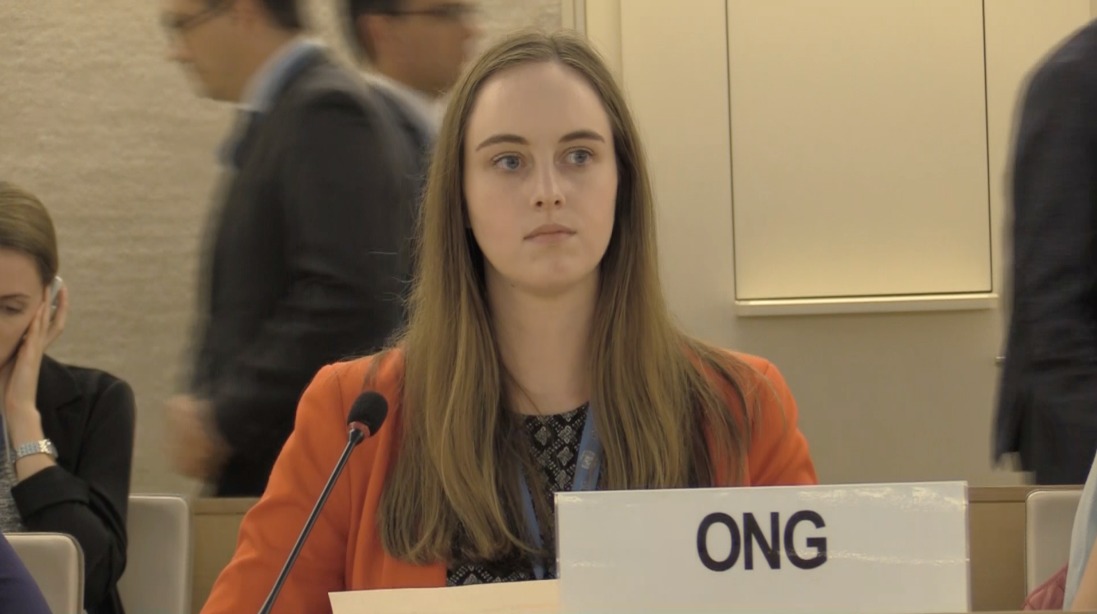On Tuesday 11 September 2018, at the 39th session of the United Nations Human Rights Council in Geneva, Americans for Democracy & Human Rights in Bahrain (ADHRB) delivered an oral intervention under the Item 2 General Debate, responding to the new High Commissioner for Human Rights’ remarks. In the remarks, ADHRB spoke about the sharp deterioration in the human rights situation in Bahrain, noting widespread repression of fundamental freedoms. ADHRB called on Michele Bachelet, the new High Commissioner for Human Rights to continue former HC Zeid’s strong, outspoken, and deliberate approach to human rights around the world. Read below the text of the intervention, or click here for a PDF of the remarks.
Ms. High Commissioner,
We congratulate you on your appointment as High Commissioner for Human Rights and give our warmest welcome as you take up this mandate.
We were continually inspired with your predecessor’s commitment to the human rights situation in Bahrain and the GCC States. During his tenure, High Commissioner Zeid repeatedly raised concern over Bahrain’s restrictions on civil society and the kingdom’s lack of engagement with international human rights mechanisms. He sharply criticized Bahrain for its continuing refusal to cooperate with the Office of the High Commissioner and the Human Rights Council Special Procedures, who have been denied entry since 2006.
The human rights situation in Bahrain remains critical now. The government has effectively closed all civil and political space in the kingdom ahead of parliamentary elections this November. All major opposition political groups have been dissolved and new legislation prevents former members from seeking or holding elected office. Free expression is curtailed by excessively broad cyber-crime and anti-terror laws used to silence dissent, and the only independent newspaper was forced to close. Bahrain’s leading human rights defender, Nabeel Rajab, is serving a seven-year prison sentence for simply discussing human rights violations, despite last month’s decision from the Working Group on Arbitrary Detention calling for his immediate release. As the Working Group noted, Bahrain’s use of arbitrary detention against activists and political opponents is so widespread that it could amount to “crimes against humanity,” with thousands of political prisoners locked away for exercising their basic human rights.
We hope you will continue former High Commissioner Zeid’s legacy of a strong and deliberate approach to human rights around the world, and that you will continue to highlight and identify country specific cases of concern, including Bahrain.
Thank you.





